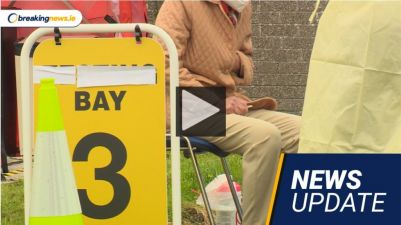It is in society’s interest that an IT worker who made child abuse material and was caught with nearly 2,000 such images continues towards rehabilitation rather than be sent to jail, the Court of Appeal ruled on Tuesday.
Robert Traynor (54), with an address in southwest Dublin, left court in March with a suspended sentence after pleading guilty to possession of 1,938 images and 183 videos of child pornography on February 2nd, 2018.
Traynor, a former computer worker at a bank, had also admitted the production of 1,650 computer-generated images on September 22nd, 2014, contrary to the 1998 Child Trafficking Pornography Act.
The Director of Public Prosecutions (DPP) later appealed the sentence on the grounds that it was unduly lenient.
The DPP claimed Judge Pauline Codd had erred by failing to include a period of incarceration in the two-and-a-half-year wholly suspended sentence which she handed down at Dublin Circuit Criminal Court. The appeal, however, has been dismissed by the three-judge court.
'Lenient'
In a written judgement delivered on Tuesday by Ms Justice Isobel Kennedy, it was acknowledged that the decision “to wholly suspend the sentence renders the sentence a very lenient one”.
However, Ms Justice Kennedy, who was sitting with Mr Justice Patrick McCarthy and Ms Justice Úna Ní Raifeartaigh, said “the purpose of this suspension is to further the respondent’s rehabilitation, which is in the interests of society”.
Ms Justice Kennedy also noted the offences Traynor’s had been convicted of were “morally reprehensible” and “must be marked by a significant censure”.

Although she admitted the pre-mitigation sentence “was somewhat lenient”, the judge also wrote it “nonetheless was within the margin of appreciation to be afforded to a sentencing judge”.
Judge Codd, Ms Justice Kennedy continued, had given sufficient weight to the mitigating factors in the case, such as the early guilty plea by the respondent, his lack of previous convictions and his expressions of “regret and remorse” which he has displayed at counselling sessions he was attending to help him address his previous conduct.
“The fact that the judge wholly suspended the sentence was a decision which fell at the very outer limits of the margin of appreciation afforded to a judge, however, we are satisfied that the sentence falls within that margin of appreciation and, accordingly, we will not intervene,” Ms Justice Kennedy concluded.
The judge said the appeal court had also considered whether incarceration would now serve the interests of justice. "We have concluded that it is in the interests of society that the respondent continue with his rehabilitation in the community," she wrote.







